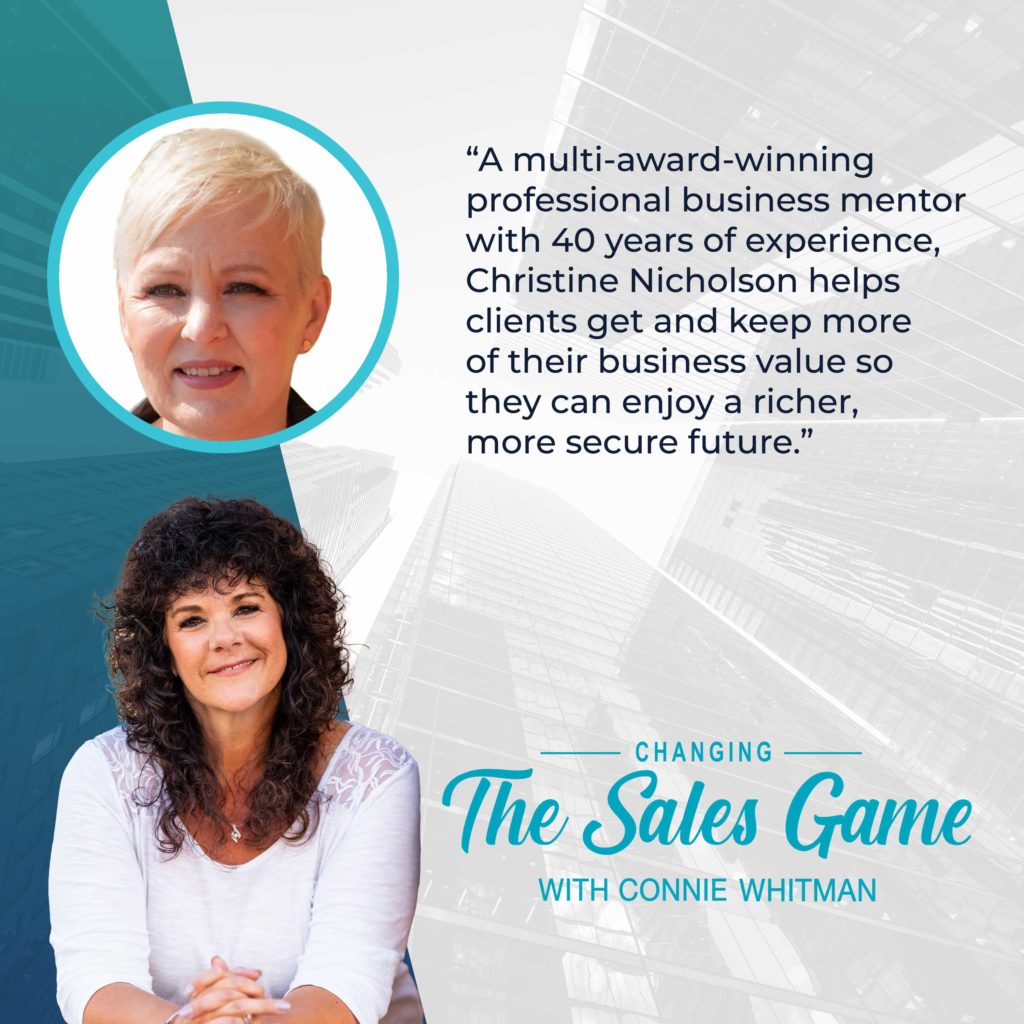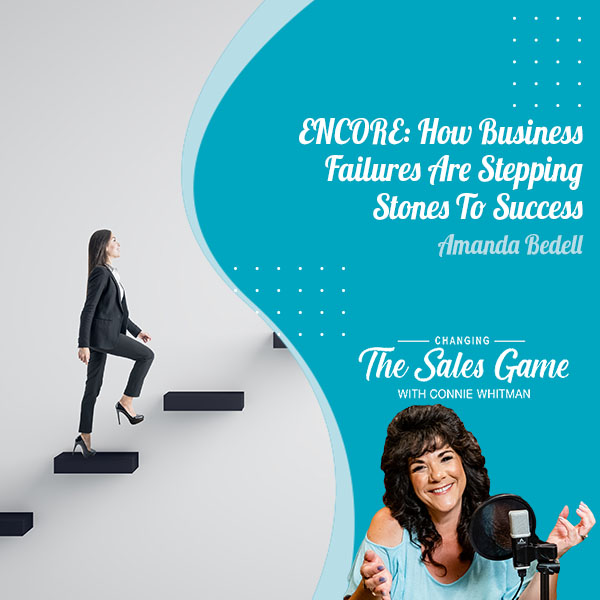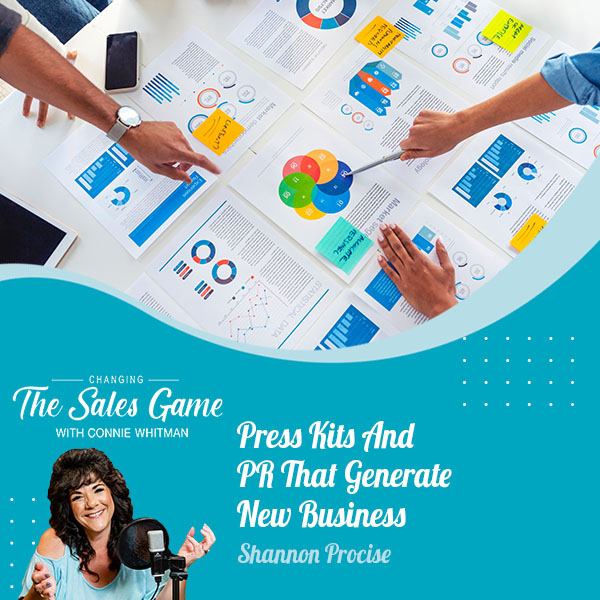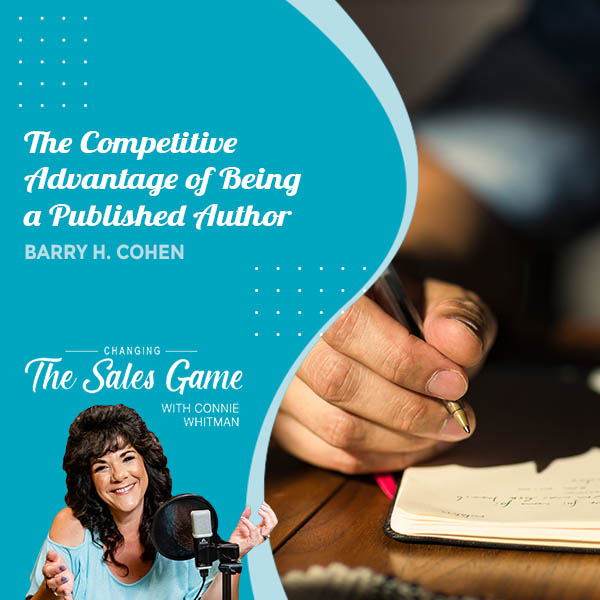Succession planning is twofold. One is an emotional one – the desire to leave a legacy – and one is a financial one.Carol Alongi
Check Out These Highlights:
Being in business for over 20 years I am busy running my business and sometimes we business owners forget that our lengthy to-do list will never be completed! As I am aging, I have thought about succession planning to either sell my business in the next decade or have my kids choose to take it over. Either way, I need to infrastructurally as well as organizationally have a plan that allows me the opportunity to step aside and cash out.
Watch this episode on YouTube.
Exit And Succession Planning Strategies With Christine Nicholson (EP. 107)
As always, I’m thrilled that you’re joining us in this episode. Every episode as you read, I hope that you feel my mission and passion to change the word sales from this icky, manipulative, and sleazy perspective. We have to start thinking that sales are coming and sharing from a place of love, care, and respect to help you on your mindset shift from that ick to the love. I have a free gift for you, my free Communication Style Assessment.
You’ll get two reports. One is spotlighting your natural communication strengths or superpowers. You want to lean into them. That’s a good piece of information to have as well as your lowest score, which is usually a blind spot, understanding what our blind spots are and how people are perceiving us if they communicate from that blind spot. It’s important information for you. Please take the free gift from me to you.
Additionally, if you’re loving the show, which I hope you are, please subscribe, rate, and review. That helps with Apple analytics and all those numbers thing that our society seems to run from. Subscribe so you don’t miss it and share because sharing is caring with your peeps so they, too, don’t miss an episode. Thank you again for reading.
My quote is by Carol Alongi and she says, “Succession planning is twofold. One is an emotional one, the desire to leave a legacy, and one is a financial one.” Being in business for many years, I’m busy running my business. Sometimes as business owners, we forget our lengthy to-do list. We’re probably not ever going to get to all of them. As I’m aging, I’ve thought about succession planning more and more to either sell my business in the next decade or if my kids choose to step in and take over. Either way, I need to build that infrastructure as well as organizationally have a plan that allows me the opportunity to eventually step aside and cash out, hand off, or whatever the situation may be.
My guest, who’s an expert on this topic, is Christine Nicholson. Christine and I were going to discuss the topic of generating real value that business owners can extract to fund a better retirement and leave a thriving business for the next owners. It all starts with letting go. Christine is a multi-award-winning professional business mentor. She has many years of experience. She’s my peer. She’s written four books, spoken at over 200 events, is qualified as an accountant, and has a Law degree and a couple of other Master’s degrees.
About Christine Nicholson:
Christine and I discuss the topic of generating real value that business owners can extract to fund a better retirement AND leave a thriving business for the next owners. It all starts with letting go. Christine is a multi-award-winning professional business mentor with 40 years of experience. She has written 4 books, spoken at over 200 events is qualified as an accountant, and has a law degree and a couple of other master’s degrees. I’ve saved businesses in different sectors THOUSANDS of pounds/dollars and helped owners increase the value of their businesses by MILLIONS.
How to Get in Touch With Christine Nicholson:
She’s brilliant and she’s my friend. She has shared business in different sectors, thousands of pounds and dollars, and has helped owners increase the value of their business by the millions. Please help me welcome Christine back to the show. This is our second time on. Thanks for being on, Christine, and for sharing your zone of genius with us.
I almost feel like I need to leave after that introduction. It’s like, “I can only disappoint you from here on end.”
Here’s the thing. You’ve taken all of that education, knowledge, and expertise. You’re paying it forward by helping business owners understand the mechanics of building the infrastructure so they can sell hands-off. Christine gave us a lot of nuts and bolts in the last episode, so I asked her to come on to share some success stories as it relates to different topics of succession planning and handing off or stepping aside but doing it in a lucrative way.
The irony is that the reason why I do what I do is because very early on in my career, I saw what not doing this stuff does to an individual, his family, and his business and what happened in the community as a result.
The Exit Journey
We have this knowledge. We think everybody has the same knowledge, and that’s certainly not the case. We need people like you to share so that we can. Here’s the thing, people reading, whether you’re in business or thinking about starting a business, we always have to keep the ends in mind. Time marches on. We don’t slow it down. We can’t slow it down. We can’t control it, but I can control how I set myself up for success, not only now but in the future. We’re going to talk about four categories. The first one is the exit journey. Can you give us a success story or share a situation where you helped someone with that whole exit journey, not just the end result per se?
One of the challenges that a lot of business owners have is that they don’t know what the exit journey is or what’s going to happen to them. In their heads, they maybe got a concept of, “I’ll build this business up and then I’ll sell it,” but they don’t know what selling it means. It becomes very abstract. I started working with a client who came to me very specifically because they were like, “I don’t know what this journey is going to be like. I need to prepare for it.”

As I was thinking about phoning you, somebody came in and made me an offer. It looked like a pretty good offer. It’s time to get you involved. I said, “I don’t want to hear the offer for now. What I would like to do is get you to start thinking about the actual journey and what it is that you want. Let’s start end in mind. Before you got this offer with this magic number, what do you want from your business? What purpose was your business serving? What was the end that you had in mind? If you hadn’t thought about it, what’s the end that you want to start thinking about?”
It was more than one shareholder. They went away and had a good think about it. We knocked things around for a while, and eventually, we pushed them to say, “Ultimately, I want to take a magic number out of business right at the point of sale. However, I still love this industry, so I want to work in it for between 3 maybe 7 years. I can’t quite decide which. During that time, I want to benefit from the upside. I want to not just go into a job. I want to still feel like I own the business. I want to feel energized and supported by whoever is going to buy.”
That took quite a few weeks to get through that. Initially, they were thinking this was going to be a one 90-minute conversation, but when we tuned into it a bit, what that meant was that the offer was still on the table. We went back to the original people who made the offer and said, “Your offer is good. We were impressed with it but it doesn’t give us what we want. The headline number is only a bit of the story. There are five things we want that fundamentally, we can’t come to some agreement around what that might look like. We are not going to waste your time because we are clear. We also know how we can go to market. Your offer coming in has done us a massive favor because we’ve started to think about this.”
The original offer that was on the table, when we knocked it around a bit and said, “How do we come to heads of terms,” the final heads of terms were a full £5 million more than the original offer. Here’s the real deal. Not only were the sellers happy with £5 million more, but who wouldn’t be? The buyers were ecstatic about paying £5 million more. I know that might sound like, “That’s got to be a fairytale.” No.
They were good buyers and their view was, “I want to pay as much for this business as I possibly can, as long as I can get my return on investment and it satisfies the criteria that I need. I’m going to put some money in. When do I get that money out?” They were very clear on what their end in mind was and they’re this amazing partnership that’s blooming a business. The two guys have got a big lump sum. Their initial lump sum was energized by being part of something bigger than them and they’ve taken their business to a whole new level.
It’s so fascinating. The word you kept using throughout that whole description was clarity. They got clear on what they wanted and what they were getting. It becomes a no-brainer to say, “All of what you’re saying makes so much sense. I get the return on the investment on the back end. I’m paying a little bit more but I’m going to get more on the back end.” They were able to sign on and continue with their zone of genius and do the transition over so there was no runoff of clients or whatever that is either because they were tag teaming with what was the old regime or the new regime.
It’s a brilliant model but he didn’t even know that going in that that was an option. We do this knee-jerk reaction, “That sounds like a lot of money. Let me cash out,” when you could be leaving money on the table. That’s my sales thing. I see people leaving money on the table all the time, day to day with their business. You even see it at the end when there could be such a much bigger cash-out. Without clarity, we can’t discern what that number is or what that strategy of keeping them on or not keeping the hierarchy or the regime on is. With all of that, we need clarity. What a brilliant story, even though the buyers were paying more.
They’re happy to pay more because they’ve got two people who have re-energized their business that’s been acquired and bringing value to the business that they already owned. There’s such a one-on-one mix of fifteen collaborations. It’s not an addition. It’s a multiplier. The key to all of that is when the right buyer meets the right seller, and cultural alignment is the magic source. It’s the thing that makes a difference.
When the right buyer meets the right seller and there's cultural alignment, that makes the difference. Share on XIt’s the linchpin that brings it together. What you describe is this win-win-win combination. The buyer won, the seller won, and the clients continued to win because whatever that business was offering in the marketplace, they made it better in some capacity. That ripple effect becomes this nice trifecta of winning. To me, that’s such a beautiful way to end a business.
Exit Preparation
I don’t believe in winners and losers when it comes to business because there’s enough business to go around, but at the end of the day, this is it. We’re at the end of our lifespan so to speak. The end of being a business owner or transitioning out into whatever that next step is was a great story. I love it. Can you share a story where you helped with the exit preparation? It’s like what you did here but I’m assuming it’s that preparation of maybe keeping the business and running it without them. I don’t know. Exit preparation, what does that look like for you?
I get approached by clients who want to get ready for an exit without thinking about the succession piece. This brings three things together. “What options do I have? What do I need to get out of the day-to-day?” Fundamentally, the less you’re in the day-to-day, the more your business is worth. “How do I then get the business so that I can get the value out of it when I choose?” I hear a lot of business owners going, “I don’t need you because I’m never leaving my business.”

We had that conversation last time. It’s like, “If you are never leaving your business, I want to know what your beauty regime is because I want some of that if you’ve got the elixir of eternal life, yes, please. What are you charging?” I was approached by one client who was like, “I’ve got an amazing business and it gives me fabulous dividends. You got it to where I want to take it. I’ve got a great team. I’m holding the business back, but I don’t know how to let go. Letting it go to sell it and getting it ready for sale so that it’s ready for someone else would be a good idea.”
When I got under the bonnet of it, this business was making an extraordinary amount of money. The return on investment every year, I’ve never seen anything like it. The first thing I did was get him to speak to a wealth planner so that he could understand that if he didn’t have a job and therefore wasn’t paid the equivalent of a salary, how he would earn his money?
This is one of the things that he was afraid of. “If I’m not working, I’m not earning. If I’m not earning, I’m going to be poor. Where am I going to get my money from?” He hadn’t associated the investment that he makes in his business with the same thing as his investment in his 401(k), as you call it, over in the state, a pension, or other investments that might be invested for income. He hadn’t associated those two things being the same.
There was a multiple-layer thing here. One is the biggest journey that most business owners go through is the 7 inches between their heads. We had to get into his head space to prepare him for the fact that, “You can earn money while you are sleeping because business ownership doesn’t mean business control, you being a director, and it doesn’t mean having a job. Let’s start treating your business as an investment that creates income without you having to work.” That was a big step.
The biggest journey that business owners go through is the 7 inches between their heads. Share on XThe next step was, “If you don’t want to be running this and you’re running it every day, who else needs to run it?” He was going to go out to the market to recruit an MD. He’d never seen his existing staff as MD material because they weren’t the same as him. He didn’t realize he had this little superstar right under his nose, whom he thought incredibly highly off. However, because she wasn’t him and he was the MD, therefore the next MD or Managing Director of this business had to be like him. It was like, “I’ve got to go and find someone like me.”
We went through a journey of, “What would happen if someone that wasn’t you or like you was running the business, given that the business is already at a particular place and you got it to that place?” It’s a bit like going to Everest base camp. Lots of people go to Everest base camp but never get to the peak. Basecamp is enough. There are those intrepid souls that then go for the peak and they’re very different to the people who get to base camp. What he didn’t recognize is he was a base camp guy and he had a mountaineer on his hands.
When we did some analysis and assessment, it was easy to get that this is the person who would never have started a business in a million years but could take an existing business and accelerate it. It was getting him to see that. He’s got to put his future wealth and income in the hands of this one person. Over a short period, we let her have a go and that business rocketed, which was great because he’s got even more dividends.
When we looked with a wealth planner, we were like, “Sell this business, take that money, and invest it in some unit trust. What would the return be?” It’s a lot less than what he was already getting. He hasn’t got that whole fear of missing out and de-risking for his business because he’s got someone who’s taken it to the next level. He’s automatically done some succession planning. He’s recognized that he was the problem and got out of his way.
He also realized that that wasn’t a failure on his part but it was a huge success because he was the one who found the little pocket rocket that he’s got running his business. He groomed her into a position where she had the confidence to take it to the next level. He got out of the way and was exit ready. He isn’t needed in his business at all.
He caught up to what you were seeing or what the options were. We don’t know what we don’t know. I started with the blind spots and how we communicate. We all have blind spots. It’s the same thing with business. You come in and have the right people talk to him for him to see how to organize the plan. We don’t know. Think about it. I’ve never sold my business before. I’ve been working on my business for many years and building it. How would I know how to sell it at the end? I’ve never been there and done that.
We need to educate ourselves on where we are and where we want to go. There should be a little bit of a runway there. It shouldn’t be like, “I want to sell it tomorrow,” because you don’t have enough time to put the pieces in place like him getting his head wrapped around, walking away, and realizing he had groomed the perfect person. He still had a growth potential to bring the business to the next level once they were put into a more powerful position, even though they probably had a lot of influence and power on the direction of the business before becoming the MD or Managing Director.
Successful Succession Planning
It’s a great story. I love it. You’re right. You had to get in between his ears and get out of his way to see the fruits of his labor and how it could take him well into retirement and then beyond. Also, the legacy that he probably left his family because he was making more than he would have been making in the market of real estate or whatever it might be. The next one is succession planning. You mentioned it with this one. Do you have a story where succession planning got the person to where they wanted to be and how you helped them get from point A to point B?
It will probably come as no surprise to any of the readers of this show. When people come to me to talk about their exit planning journeys, they’re not always at the end of their life. In their business life, they’ve usually got another idea. Many of them have got a lot of ideas. This particular client I had wasn’t even 30. He’s like, “I’ve got so many ideas. I’ve built this business up since I was eighteen.” He’d taken this business from what was a weekend summer hobby to something quite substantial.

He’s like, “It’s the idea of doing this forever. I get this pit of depression every now and again but I can’t ever imagine it working without me. What am I going to do with it?” Just because you own it doesn’t mean to say you have to work in it. This is the link many business owners have because they found it and they were doing all the jobs in the first place.
As they grow, the value that they feel of themselves is tied to what they do in the business. “If I’m not doing anything in the business, I have no value.” That’s an ego psychology thing. I’m no psychologist. What we got him doing was looking at everything he did. I’m going to use the phrase death by a thousand cuts but only in terms of the death of the reliance of the business on him, one cutter at a time because it was handing over tasks to individuals and then entrusting those people to get on and do what needed to be done.
This boiled down to having the right people and doing the right things at the right time for the right reason. That can all be boiled down to the C word, Clarity. We got clear on what the right things to do were and then who were the right people to do it. Let’s face it. The managing director or the chief exec is not the person who needs to do everything. I always get them like, “Stop doing your bookkeeping for a staff.”
Anybody who does their payroll, if you’ve got more than ten staff, do you think it’s that important for you as the managing director to be doing your payroll? I then started to think, “How much more efficiently would this business work if you had the right people doing the right things at the right time and giving them the framework within which they could make their decisions?”
If they’re doing the right thing at the right time for the right reason, then they understand where you’re trying to get to. They’ll make the right decisions as long as you give them the parameters. It’s the 7 inches between your ears kind of journey. With the release that he had to go and explore other things, I have to say, the first thing he did was set up a new business where he went and did the day-to-day unit. I’m like, “Have you learned nothing?”
It takes a while for us to learn a new journey.
It’s a habit thing, isn’t it? If you’ve been a smoker for twenty years, you might remember to not buy cigarettes but I bet when you’re drinking your coffee, you might not even have a cigarette between your fingers but you might start doing the whole action. I’ve seen people doing it. They’re like, “I forgot that I’m not a smoker anymore.” Ultimately, that’s what happened. He no longer works in the day-to-day of his business. He’s in the hospitality industry. During the pandemic, he bought his first house and first Aston Martin motor car. I remember him sending a picture of it because I’m a bit of a petrolhead. He sent me a photo of it and I wept because it’s so beautiful.
He did all of that during the pandemic when his hospitality industry was being decimated. He managed to then be able to have the clarity to think about how his business would work even during a pandemic and it gave him some brilliant ideas that gave him the longevity of his business. In the time that I’ve been working with him, he’s gone from operating out of a garage into professional premises. He’s into his third lot of professional premises that are so much bigger. He’s flying. I still catch him in the day-to-day, and I have to get the ruler out and smack him. I know that that’s physical abuse.
He allows it so it’s all good. It goes back to that clarity. Once you show someone a better way of doing something, you have two choices. As the person learning, I could either say, “This is a great idea,” which is what he did. He stepped away from that business and started another business. Here’s the thing. I get what he did. I understand because of the other business that he grew by doing the day-to-day. He’s figuring like, “I made that a success. Let me duplicate my process.”
I understand why he did what he did because, in his mind, he’s got to be very hands-on to grow that next business. I also see what you’re saying, “Have you not learned?” Start to put the right people in place right out of the gate so he can remove himself immediately from the day-to-day and perhaps start a third, fourth, fifth, and sixth business. You have the mental freedom that you’re not bogged down and tasks with those remedial tasks that can be done by other people so that he can be the brilliant star out there shining on whatever the next adventure could be for him.
He is a business guy. He is an entrepreneur in the way he thinks, so he sees opportunities in businesses. If you’re bogged down by the tasks of the minutiae of the day, how do you springboard another business? That clarity was brilliant and amazing. He’s young so he’s not ready to check out but he has this whole succession plan that he could keep revitalizing every time he puts a new business in place. It’s a great model.
Funny enough, I used this phrase, “Sometimes you can be so busy looking at the blades of grass that you don’t realize you’re on the most amazing golf course.” It is about stopping your horizon, being the end of your toes, and lifting your eyes. That’s a habit. It builds that habit by looking at the horizon. You might start it five minutes a day, but gradually, you’ll get to the point where you are spending significant amounts of your time making a difference to your business. The things that add value are what I call £10,000 an hour of work. You can’t do £10,000 an hour of work if you’re doing £15 an hour of work.
Sometimes you can be so busy looking at the blades of grass that you don't realize you're on the most amazing golf course.” Share on XYou don’t have enough room in your brain to be able to execute at that higher level. This is great for succession planning for people who are looking to create multiple businesses so that they can free up their time to do exactly what you said. Do the business part of things that are going to make the money and leave those more task-driven things to the right people. Getting them to do the right thing at the right time for the right reasons and knowing what those parameters are.
Business Mentoring
You also do business mentoring, which can be for business at any stage of the game. Can you briefly talk about that? I want everybody to understand the bandwidth of your legal and financial background as an accountant, plus as a business owner, how you help businesses not only make more money in the long-term to set up for that exit but also in the short-term. Talk about business mentoring as well.
If you’ve never experienced good business mentoring, you might think, “We’re just having a cup of coffee and you’re just listening to me.” That’s the first step. I am going to give you a good listening to. Sometimes when you say things out loud, you hear them in a very different way. Depending on who’s listening to you, you hear yourself also in a very different way.
A real example of this was a guy who came to me and said, “I’m fairly early in my business. I want to prepare for an exit but for the moment, I don’t think I’m there. I want to do the little things that I can build up to make sure that my business is resilient.” We talked about all the problems and challenges within his business but within 90 minutes, you could tell that his real passion was he had a new idea for another business.
He was doing all the right things in his original business because he was making it so that he was pulling himself out of the day-to-day. He completely got that. That was why he was speaking to me. When we started talking about the new business, he came up with fifteen excuses why he couldn’t get started. I’m like, “No. Let’s laser-focus on this one idea. What’s one thing that you need to do to do this?” He said, “I need to install a telegraph pole in my yard.” It’s his business yard or commercial premises.
He said, “That’s one thing I need to do.” I said, “How much is that going to cost you?” He went, “I don’t know, $300 to $500.” I said, “How quickly could you do that?” He said, “It could be done tomorrow.” I said, “Do you have $500 in your bank account now?” He said, “Yeah.” I said, “Stop talking to me. Pick up the phone, order the telegraph pole, and get it installed.”
He went and did. He came back fifteen minutes later and said, “It’s going to be done tomorrow.” I said, “What’s the next thing that needs to happen for this business?” He said, “I suppose to better think about a business name.” I said, “Don’t overthink it because honestly, nobody cares. It’s a very short thing. You’ve got someone else to think about it.” Twenty-four hours later, he had a nice logo and some nice branding.
I said, “Now, what do you need?” He went, “I’ve got the trainer.” He’s going to set up this training organization. He said, “I suppose I need a customer.” I said, “That business that you’re already running, don’t they have people who would benefit from this service?” He said, “Yeah.” I said, “If you picked up the phone to them and said, ‘I can train your guys. The telegraph pole goes in tomorrow,’ do a bit of workbook and make sure your trainer is on board. You could do a quick course, even if it was only an intro course. If today is Wednesday, you could have your first training on Monday.”
That’s what he did. He phoned his existing customers and said, “Have you got anybody who isn’t qualified in this one particular thing? I’m running a course on Monday.” He started getting revenue straight away. He hadn’t had the confidence to get started and I’m like, “Just do it.” It was a matter of confidence, to be honest.
It is so funny because he was already successful in the business he started. We have these other ideas and as business owners, we’re like, “I can’t do that because I have to do this. I can’t think about that because I’m here.” You said it before. We say things and people will repeat back to me things I said. They’ll then say, “Did you hear what you said?” I said, “Now, I did.” We don’t even realize what’s coming out of our mouths until someone mirrors it back. I’m hearing it in your voice and I’m like, “That was an excuse. I didn’t even realize that I was stopping myself.”
Business mentoring is so important as well. One thing I always say to my clients is, “If you’re going to hire a coach for some other skill, not necessarily sales and coaching, but for something else like IT, make sure they have a coach. If they’re coaching you and they don’t think they need a coach, it’s very dangerous because we all have blind spots.” You described this one.
This guy was a successful businessperson who saw the importance of succession planning. It’s great that he’s a planner so think about his succession plan. It will be worth a lot more money because he has the landing path or the runway to be able to build that and sell it at a premium. Additionally, he’s able to start another revenue stream for retirement or selling down the road. It’s brilliant. We all need someone to identify our blind spots that we don’t realize.
I love that. It was just listening and parroting back. “Did you hear what you said? You could get it up tomorrow for $500, so why aren’t you doing it? Make the call now.” Have people strike while the iron’s hot. Sometimes we make excuses. “I can’t because I have to go pick up my kid. I have to make that call or I’m recording the show with Christine.” We make these excuses to keep us from doing what our hearts, souls, and guts are telling us to do. Sometimes you need someone to provide the clarity. The episode word is clarity. It’s all about clarity.
As a postcode to that end thing, here’s real magic. Not only did he get the telegraph pole installed and it cost him $500, which he was invoiced for, which he paid on 30 days terms, but he was selling the services to his clients where they paid upfront. He had the money in the bank before he had to pay for any of the investments that he made.
We don’t think about that. We think, “I need the money to pay for.” We want to get the money in to pay for because we have those 30-day windows. Being business owners, we get caught in the minutiae. I do. It’s tough. We all need someone that we can have like you as a business mentor. We’re looking for that succession plan. You have such a great background, Christine, between the legal and the accounting and the business and financial expertise you bring to the table. It’s a brilliant combination. You know I love you.
Here are a couple of things or ways to connect with Christine. Her website is BusinessMentorUK.com. Go to her website. There’s a bunch of information there. If you have an email specific that you’d like to have a conversation maybe, go to Christine@ChristineNicholson.co.uk. Also, there’s a free quiz that Christine has, which is GetExitReady.co.uk. Reach out to Christine and find her in whatever way is comfortable for you. Christine, as always, thank you for coming on and sharing your zone of genius. I so appreciate that. I appreciate you and what you’re doing out there. Those were great stories. Thank you for coming back and sharing them.
Thank you very much for hosting. I love being on your show because the energy is fab.
Thank you. You know I love doing this. Sharing information is what I’m meant to do on this Earth and to help people make more money without working any harder. Also, getting the ick out of that whole sales conversation, generating leads, and all of those pieces of the puzzle. It’s my jam. Your jam is succession planning and business mentoring.
Christine, thank you again for taking the time and sharing so many great stories that make it tangible for people to see what’s possible. Sometimes you hear the steps and you go, “I’m not ready for that.” Yet when you hear the success story, you’re like, “That sounds like me.” That’s why I was grateful that you were able to come on and share some successes. Thank you so much.
I hope you will join me every episode as we question, build and discover together. No matter where you are on your business journey, that between me and my guests and the tips and strategies we share, hopefully, can help you move the needle so that you can make more money with ease and grace so we’re not always working so hard to have that income coming in.
It is possible. You just have to have the right strategies, tools, and people in place. It’s all about clarity. If you learn nothing from this episode, hopefully, it was that piece. We need clarity in our business to grow. Thank you again, Christine. Thank you all for reading. As always, thanks so much for being on. We will see you next time. I’m honored to have you on this journey with me. Take care.
Important Links
- Communication Style Assessment
- Christine Nicholson
- Christine Nicholson – Past Episode
- Christine@ChristineNicholson.co.uk
- GetExitReady.co.uk
- https://Linktr.ee/ConnieWhitman
- https://ChangingTheSalesGame.MyKajabi.com/All-Star-Community
Stalk me online!
- Connie’s Website
- Connie’s LinkTr.ee
- Connie’s #1 International Bestseller Book – ESP (Easy Sales Process): 7-Step to Sales Success
- Download the FREE Communication Style Assessment
- Join our All-Star Community
Subscribe and listen to the Changing the Sales Game Podcast on your favorite podcast streaming service or YouTube. New episodes are posted every week on Web Talk Radio. Listen to Connie dive into new sales and business topics or problems you may have in your business.

 Christine and I discuss the topic of generating real value that business owners can extract to fund a better retirement AND leave a thriving business for the next owners. It all starts with letting go. Christine is a multi-award-winning professional business mentor with 40 years of experience. She has written 4 books, spoken at over 200 events is qualified as an accountant, and has a law degree and a couple of other master’s degrees. I’ve saved businesses in different sectors THOUSANDS of pounds/dollars and helped owners increase the value of their businesses by MILLIONS.
Christine and I discuss the topic of generating real value that business owners can extract to fund a better retirement AND leave a thriving business for the next owners. It all starts with letting go. Christine is a multi-award-winning professional business mentor with 40 years of experience. She has written 4 books, spoken at over 200 events is qualified as an accountant, and has a law degree and a couple of other master’s degrees. I’ve saved businesses in different sectors THOUSANDS of pounds/dollars and helped owners increase the value of their businesses by MILLIONS.


